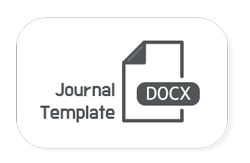Trust Research on Didi Platform: About Influencing Factors and Willingness to Use
DOI:
https://doi.org/10.53935/26415313.v5i1.208Keywords:
Sharing economy, Didi platform, System trust, Perceived risk, Continuous use intent, Platform operation mechanism.Abstract
Along with the expansion of the scope of the “sharing” economy, creating more values by sharing exist resources is becoming increasingly common, facilitating energy saving and emission reduction and realizing mutual benefits in the ridesharing economy. Ridesharing, with Didi Chuxing as a popular ride-hailing and representative platform, has become a trend in recent years. However, the ride-hailing industry is faced with problems and challenges due to limitations and inadequate standardization of its institutions. In the industrialization of the ridesharing economy, lack of relevant policies and regulations and limitations of institutional environment leads to many problems. How to improve the trust of the users in the industry by the platform operation mechanism and thus ensure the steady growth of the transaction volume and users becomes the tasks that the whole industry needs to address. Taking "Didi platform" as the research object, this paper investigates the platform operation mechanism and consumers' trust in the third party ridesharing platform. The results show that : 1) the security mechanism of the ridesharing platforms, including payment security, price mechanism and feedback mechanism, as well as the influential factors of social system, including the reputation of platforms and government supervision. The platform reputation has the most significant impact; 2) payment security and shop owners certification mechanism can significantly reduce the transaction risk perceived by consumers, and then affect their intentions of use; 3) there is a positive transfer relationship between consumers’ trust in platforms and their trust in the driver group of the platforms.
Downloads
Downloads
Published
How to Cite
Issue
Section
License

This work is licensed under a Creative Commons Attribution-NonCommercial 4.0 International License.












